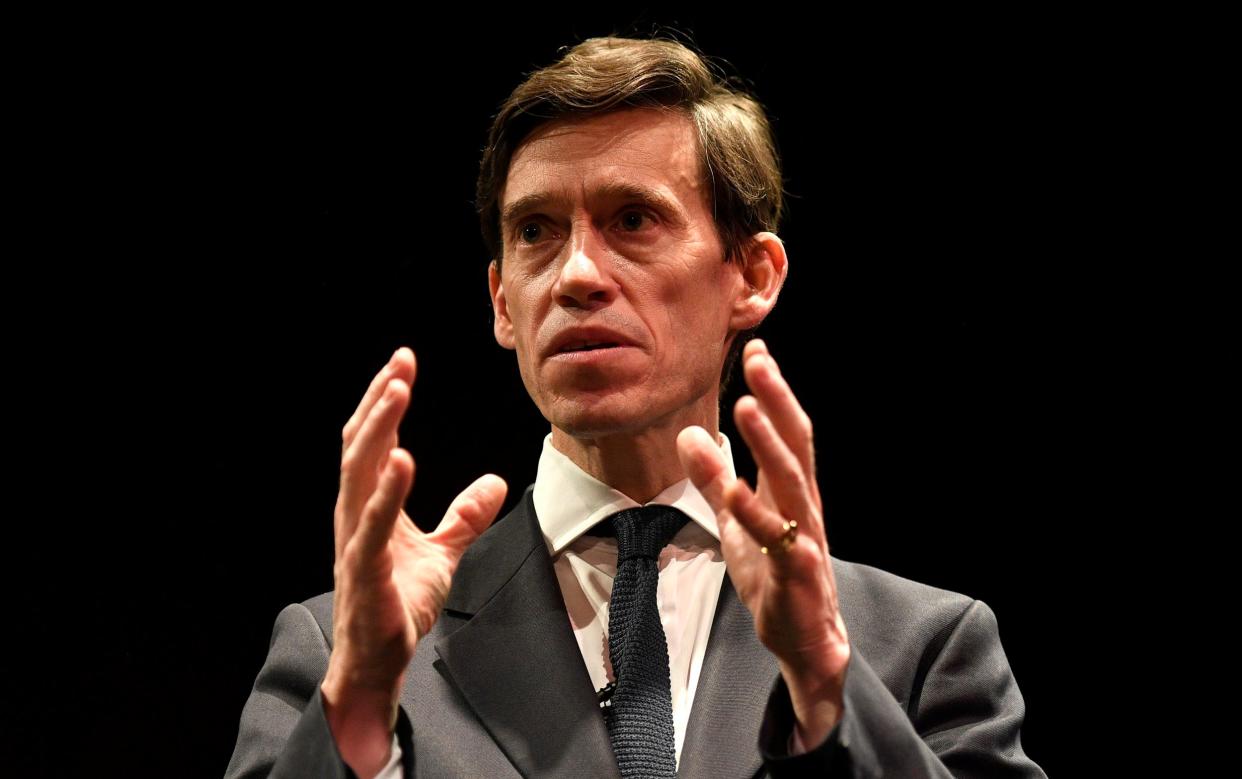Beware, Tory radicals – Rory Stewart is on the warpath

Rory Stewart was never going to be prime minister. He had far too many glaring flaws. For one, he’d held a variety of difficult jobs in the real world (soldier, diplomat, professor at Harvard), rather than becoming a Spad straight out of Oxford, like modern MPs are meant to. For another, his speeches made it sound as if he’d given actual thought to the subject at hand, rather than just reciting a list of crowd-pleasing soundbites scripted by a strategist. Most damaging of all, however, was the inescapable impression that he said things because he genuinely meant them, rather than because a pollster had told him they would be popular. As a result, he was entirely unsuited to modern politics, and his campaign to become PM in 2019 ended in swift and crushing failure.
These days Stewart leads a non-profit organisation that gives cash handouts to the poor of East Africa, and, with Alastair Campbell, co-hosts every centrist dad’s favourite podcast, The Rest is Politics. He has also, however, found time to write this memoir, Politics on the Edge: the story of his 10 years as a Tory MP. It’s very good. Even so, I’m not sure I should recommend it. This is because it casts such a depressing light on Westminster that it may put the reader off voting ever again.
On the plus side, the book is often entertaining. Stewart vividly records his encounters with the key figures of his time, and while it’s not necessarily breaking news that David Cameron is a glib hypocrite, Boris Johnson a charming liar and Liz Truss a gibbering nitwit, it’s enjoyable to read fresh evidence of it. Particularly amusing are Stewart’s memories of Steve Hilton, the shoeless svengali of Cameron’s No10. During one visit of Downing Street, the author finds Hilton on the floor gazing at a map, murmuring: “F— me, look how big Scotland is. This is just f—ing mad, man.”
Primarily, though, the book is a story of frustration, bordering on despair. Its overwhelming theme is how soul-sappingly difficult it is, in modern politics, to get anything done – not just as a backbench MP, but as a minister. At every turn, ideas are thwarted, diluted or ditched, whether because of cuts, in-fighting, civil service intransigence, or rank ineptitude. Demoralised, Stewart tells a friend: “I felt far more powerful running a small NGO in Kabul.”
It doesn’t help that so few people at the top, or indeed anywhere else in politics, seem to have a clue what they’re doing. Time and again, ministers find themselves abruptly appointed to jobs for which they have little if any relevant experience, aptitude or even enthusiasm. Barely have they begun to get to grips with the role than they’re just as abruptly shunted off to another. Stewart deplores “how grotesquely unqualified so many of us were for the offices we were given”, and “a culture that prized campaigning over careful governing, opinion polls over detailed policy debates, announcements over implementation”. By the time he launches his bid for No10, he sounds so miserably disillusioned it’s a wonder he found the energy to sign his nomination papers.
(In the Acknowledgments, incidentally, Stewart mentions that a friend told him he should call this book Power Failures. God knows why he didn’t. It’s the perfect title.)

I don’t mean to make Politics on the Edge seem like the embittered rant of an also-ran, blaming everyone else for his own shortcomings: Stewart is unsparingly critical of himself, too, and well aware of his own eccentricities. The one disappointment is the ending. The book meekly tails off with Stewart leaving the Commons, and making a brief, half-hearted stab at becoming Mayor of London. What I wanted, at this point, was a thunderous climactic essay, in which the author tells us how the Tory party, and British politics in general, can be saved. But then, perhaps he simply doesn’t know.
In any case, it’s probably for the best that he never became PM. It would only have made him even more miserable. Because, as Boris Johnson, Liz Truss and now Rishi Sunak could tell him, prime ministers rarely manage to do what they set out to, either.
